Kathleen Folbigg doesn’t know where her children’s ashes are
In her first sit-down interview since being released from jail, Kathleen Folbigg revealed she doesn’t know where her children’s remains are. And a loyal friend has detailed the daily struggle to adjust to life post-prison.
NSW
Don't miss out on the headlines from NSW. Followed categories will be added to My News.
Kathleen Folbigg knew she had a target on her back after being jailed for murdering her four children.
“You go into prison for this thing that I was charged with, and you’re in deep trouble,” she said.
Labelled “the kid killer” or a “filthy piece of shit” she felt like she was “living in an asylum of some sort”.
“Girls yelling out all night or screaming abuse at me or threats. Death threats,” she said.
In her first sit-down interview since being released from jail four months ago, Ms Folbigg told Natalie Barr for Channel 7’s Spotlight that one of the inmates came good on a threat a couple of years ago.
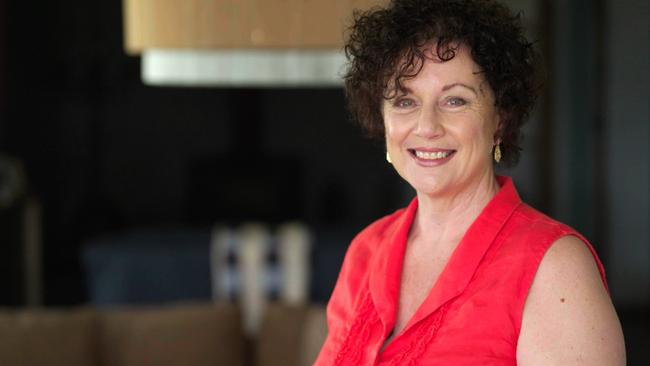
“One decided to guard the door, one chick came running in and just literally punched me in the face,” she said.
“I didn’t respond in any way because it was a surprise, a surprise attack. The biggest purple shiner you could ever have seen. But I didn’t do anything about it because, unfortunately, jail code is you just don’t.”
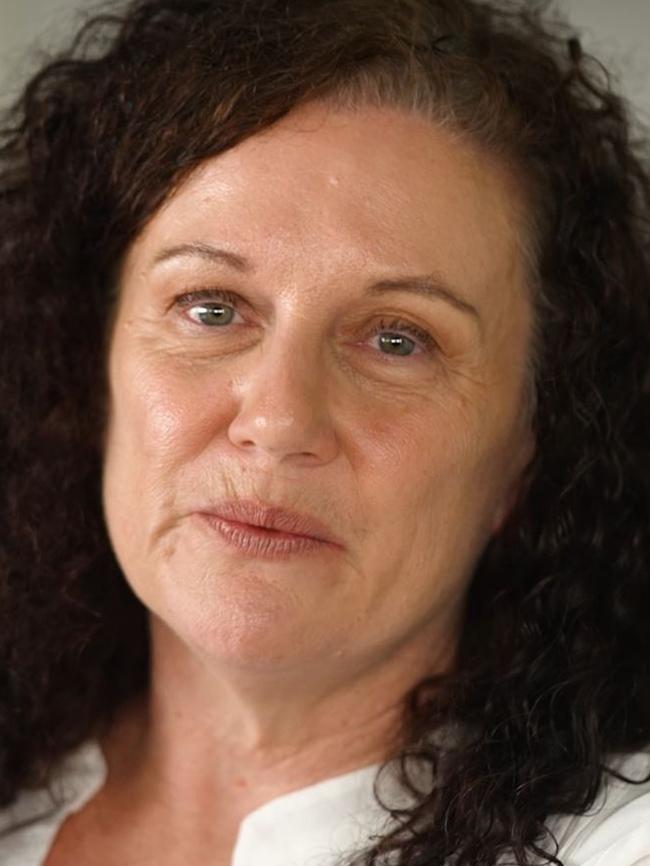
While she is now free in the physical sense, Ms Folbigg’s best friend Tracy Chapman told The Sunday Telegraph this week her friend is “far from free” and still very much prisoner 323130 when it comes to the way she goes about her day.
Living in her new home on Ms Chapman’s property on the state’s north coast, “Kath is still living the life of the person we created”.
“She locks her house down, puts her blinds down, it’s really sad actually, she is still so regimented because of the 20 years she lived in that institutionalised life,” Ms Chapman said
“She’s definitely trying to be the free person, but we have created this person who still finds safety in the regime, safety and comfort in that.
“I don’t know how we unravel that, I don’t know how long that takes or even if that is possible and I feel really sad about that.
“She doesn’t really see there is anything wrong but I feel it.
“This is the cost of incarceration. We allowed this to happen and it really hurts me.”
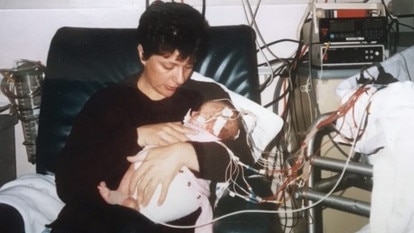
Ms Chapman said she remembered getting letters from Ms Ms Folbigg detailing the “horrible verbal and physical abuse” in jail.
“Kath was only allowed out a few hours a day, she spent years in solitary for her protection,” she said.
“Women would scream at her, telling her what they were going to do to her, rape her with a broomstick, barbed wire.
“It was absolutely horrible reading these things in letters, hearing them on the phone when I spoke to her and I felt powerless.
“That was part of my torture, I felt so helpless.”
Ms Folbigg said “those experiences, as bad as they were” helped her realise how strong she could be.
After 20 years in jail Ms Folbigg received an unconditional pardon after an inquiry heard new scientific evidence that pointed to reasonable doubt about her guilt following her 2003 conviction for the deaths of her four children, Caleb, Patrick, Sarah and Laura.
All four children died in mysterious circumstances between the ages of 19 days and 19 months.
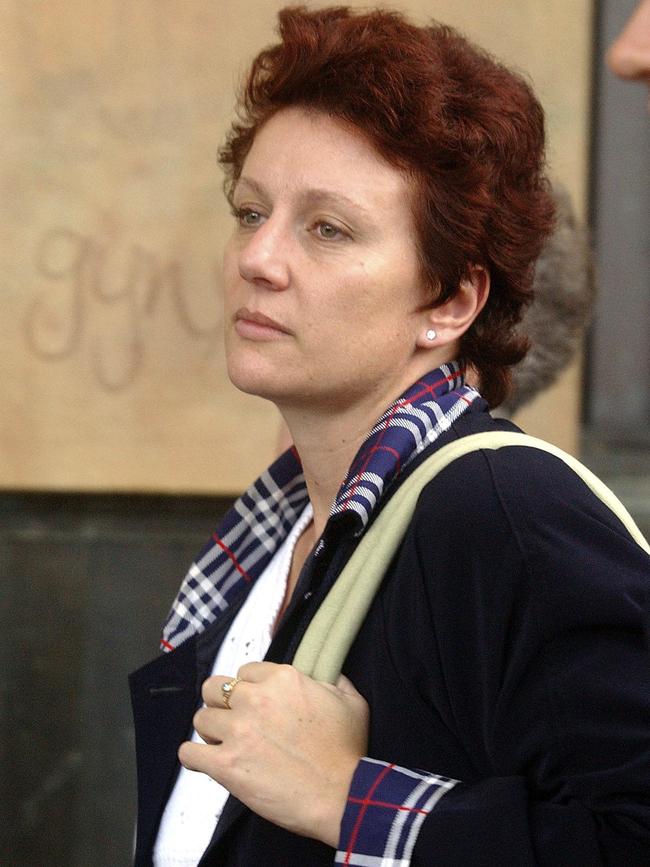
The inquiry into her convictions found scientific and psychiatric evidence that led Chief Justice Tom Bathurst to hold the “firm view that there was reasonable doubt as to the guilt of Ms Folbigg for each of the offences for which she was originally tried”.
Ms Chapman said it was important to remember her friend, now 55, still wore the shackles of the conviction and had only been pardoned.
“I can’t even have Kath come to intentional gatherings with children present, she’s on the child protection register.
“She can’t get a loan, she is a convicted criminal and relies solely on me and my family and Centrelink.
“Her life is still impacted by her conviction, she is not free and so hopefully we get a referral from (Chief Justice) Bathurst so that she is exonerated.”
“There is no time frame on that.”
While jail pulled Ms Folbigg into the darkest depths of despair, her most soul-destroying moment came long before that, when she realised her fourth child Laura had died.
She told Spotlight she was a “paranoid mum” but started to breathe a little easier once her daughter turned one.
She had already lost three babies and, finally, her youngest little girl seemed to have gotten through those terrifying early months.
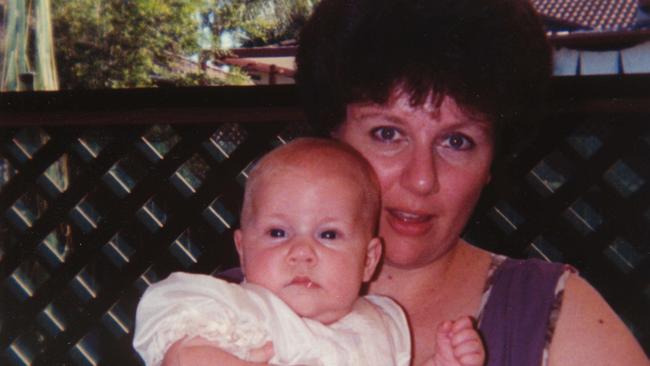
“We had the biggest first year birthday party you would ever have seen. Invited just about half the country,” Ms Folbigg said, adding that the size of the party meant she needed to hold the celebrations in a hall.
Ms Folbigg looks back now and shudders at the false sense of security that milestone represented.
“Specialists had sort of told us that after the 12 months old, she would be fine. So yes, probably relaxed a bit then,” she said.
“As far as I was concerned Laura was becoming a little person.
“But at 18 months old, when she did die, that was the most shattering thing ever because we were convinced everything was going perfectly and we were convinced that we got … I was convinced I’d finally got my family that I was so hard searching for, and she was such a presence that to lose her was too much.”
Laura’s autopsy report gave the cause of death as “undetermined” but myocarditis was identified in her heart.
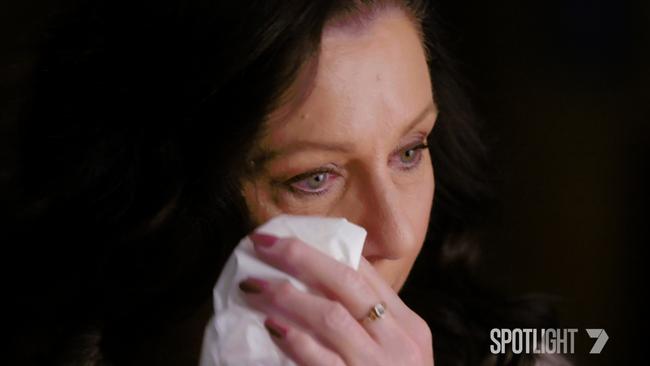
Ms Folbigg said she paid no attention to her husband Craig’s grief or what he was going through.
“I absolutely switched off after that. I didn’t care. I didn’t care about my marriage, didn’t care about my life, didn’t care what was going on.
“I was just one foot in front of the other and went through day by day and went to work, came home.”
When police asked to question her, she didn’t hesitate and went in voluntarily and unrepresented.
Ms Chapman explains: “Kath had the mindset of someone wanting to help find answers, not the mindset of someone guilty.
“Not for a second did she think they were putting her in the picture of perpetrating the crime.”
Ms Folbigg told Spotlight she thought: “Well this might help. I might be able to get some answers of some sort.
“I just sort of went along with it and answered the questions that were given to me.”
When police probed whether stress made her do terrible things, she said: “Yeah. As in, um, having an angry thought here or there.”
Police continued asking whether she hated her children, to which she replied: “Never.”
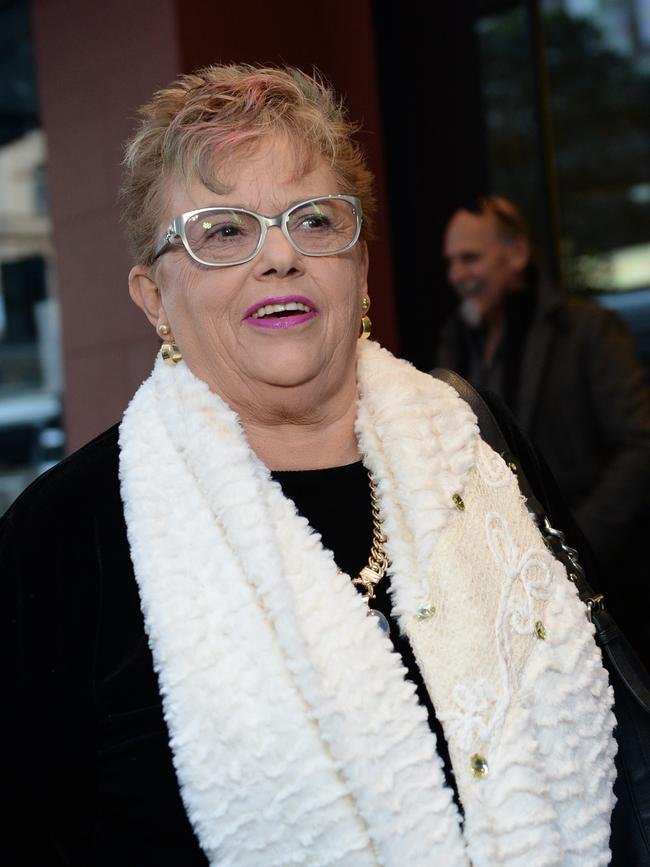
She said she didn’t realise “things were going pear-shaped” until she was “actually hit with the dastardly questions of: ‘Did you kill’?”
“And as soon as that first sentence came out of their mouths, I was like: ‘Oh my God, whoa, what’s going on here?’
“And I left that interview thinking, ‘I don’t understand’. I went in there to try and help to get some answers. What’s going on now? I was in disbelief.
“Kept thinking to myself. ‘They couldn’t possibly think, no, that that’s not right …’
“And it was instantaneous. There was no, yeah, I didn’t have to think about, it was an instant panic. I’m like: ‘God, what are you asking me’?”
Now that Ms Folbigg is out of jail, she has time to reflect on why police got it so wrong.
“Being so single-minded and just not willing to investigate anything else,” she said.
“The single-mindedness of the whole thing. It was like: ‘There’s only one answer that possibly makes sense because there was four. That makes no sense. Therefore, it’s you’.”
She believes the court of public opinion crushed her the way it crucified Lindy Chamberlain.
“To bring up a narrative that you’re cold, and you’re a monster, and you don’t have any emotions, and there’s something wrong with you because you don’t cry when you’re supposed to, or you don’t smile when you’re supposed to,” she said.
“Or you might have a sense of humour that’s a little bit wry compared to somebody else. Yeah. The showing of emotion and the very … when it’s traumatic, and deep, I can tend to look as if I’m not showing any. But that’s the exterior, the interior is a different matter.”
Lindy Chamberlain agreed, telling Spotlight: “There is no given way of grieving for any person, anywhere, at any time”.
“The worst thing to say is you’ll get over it because that tells you: ‘Right you have never lost anyone in your life’.”
While Ms Chapman will be forever grateful her friend is no longer incarcerated, she sees signs of that disassociation she displays even today.
“I can be talking to her about something, and if it’s big or stressful she just stops, goes numb. It’s how she’s had to deal with things for so many years,” she said.
“It really makes me angry that she has never received the mental health support she needs.
“She should never have gone to jail. This whole thing is about mental health.
“Kath, like many others such as Lindy Chamberlain, appears emotionally calm, distant, detached.
“That’s emotional numbing and is a form of disassociation as the big emotions attached to such horrific trauma experienced cannot be – and should not be – dealt with alone and judged by others without a trauma informed understanding of what’s really going on.”
Something weighing heavily on her mind today is the fact Kath doesn’t know where the remains of her children are.
All four babies were cremated and placed in the wall of a cemetery.
“She used to visit the cemetery and leave flowers. We’ve gone there to visit since she has come home but it appears the ashes are taken out of their place on the cemetery wall.
“They are no longer there,” Ms Chapman said.
There are little joys though. Kath’s new haircut represents so much more than a new “do”.
Shedding her long locks represents “coming full circle”.
“I only had long hair while I was in prison,” she said.
“So, to go back to a short hairstyle was returning back to me. So, I like the idea,” she said.
Ms Folbigg’s hairstyle is strikingly similar to the one she sported 20 years ago, when she appeared stony-faced and sad, on countless news bulletins and in newspaper articles.
The woman who most people believed was a kid-killing monster.
Chopping off her locks won’t shed her of the past, but it can signify a new beginning.
“I think there’s so much that’s gone on in my life. I can’t ignore it. And you can’t just create a new person,” she said.
“It’s going to be part of my life forever. There’s no avoiding it and there’s no not dealing with it. So, I would say an improved Kath. Yeah. Would probably be a better statement.”
7NEWS Spotlight - Unbroken: The Kathleen Folbigg Story airs tonight at 7pm on Channel 7 and 7plus.
Got a news tip? Email weekendtele@news.com.au
Originally published as Kathleen Folbigg doesn’t know where her children’s ashes are



